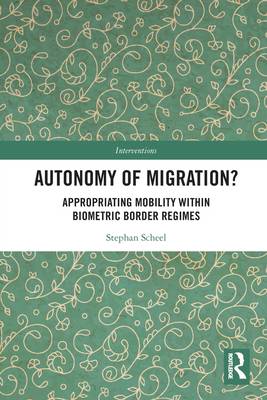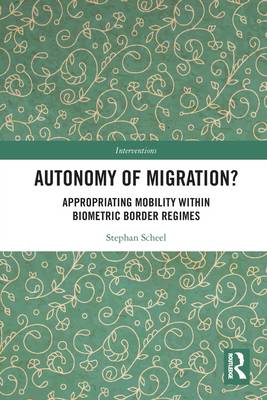
- Afhalen na 1 uur in een winkel met voorraad
- Gratis thuislevering in België
- Ruim aanbod met 7 miljoen producten
- Afhalen na 1 uur in een winkel met voorraad
- Gratis thuislevering in België
- Ruim aanbod met 7 miljoen producten
Omschrijving
Examining how migrants appropriate mobility in the context of biometric border controls, this volume mobilises new analytics and empirics in the debates about the politics of migration and provides an analytically effective and politically significant tool for the study of contemporary migration.
Drawing from the tension between the EU's attempt to achieve watertight border controls by means of biometric technologies, and migrants' persistence to move to and live in the EU, the volume pursues two interrelated objectives: first, it studies the encounters between migrants and the Visa Information System (VIS), one of the largest biometric databases in the world, from the perspective of mobility in order to investigate how migrants appropriate mobility via Schengen visa within and against this biometric border regime. Second, it addresses criticisms of autonomy of migration in order to develop it as a viable approach for border, migration and critical security studies. Hence, the book is driven by two interrelated research questions: what does the assertion of moments of autonomy of migration refer to in the context of border regimes that use biometrics to turn migrants' bodies into a means of mobility control? And how do migrants appropriate mobility via Schengen visa within and against biometric border regimes?
This book will be of great interest to scholars in border, migration and critical security studies, as well as researchers engaged in citizenship studies, surveillance studies, political theory, critical IR theory and international political sociology.
Specificaties
Betrokkenen
- Auteur(s):
- Uitgeverij:
Inhoud
- Aantal bladzijden:
- 230
- Taal:
- Engels
- Reeks:
Eigenschappen
- Productcode (EAN):
- 9780367786649
- Verschijningsdatum:
- 31/03/2021
- Uitvoering:
- Paperback
- Formaat:
- Trade paperback (VS)
- Afmetingen:
- 156 mm x 234 mm
- Gewicht:
- 358 g

Alleen bij Standaard Boekhandel
Beoordelingen
We publiceren alleen reviews die voldoen aan de voorwaarden voor reviews. Bekijk onze voorwaarden voor reviews.












